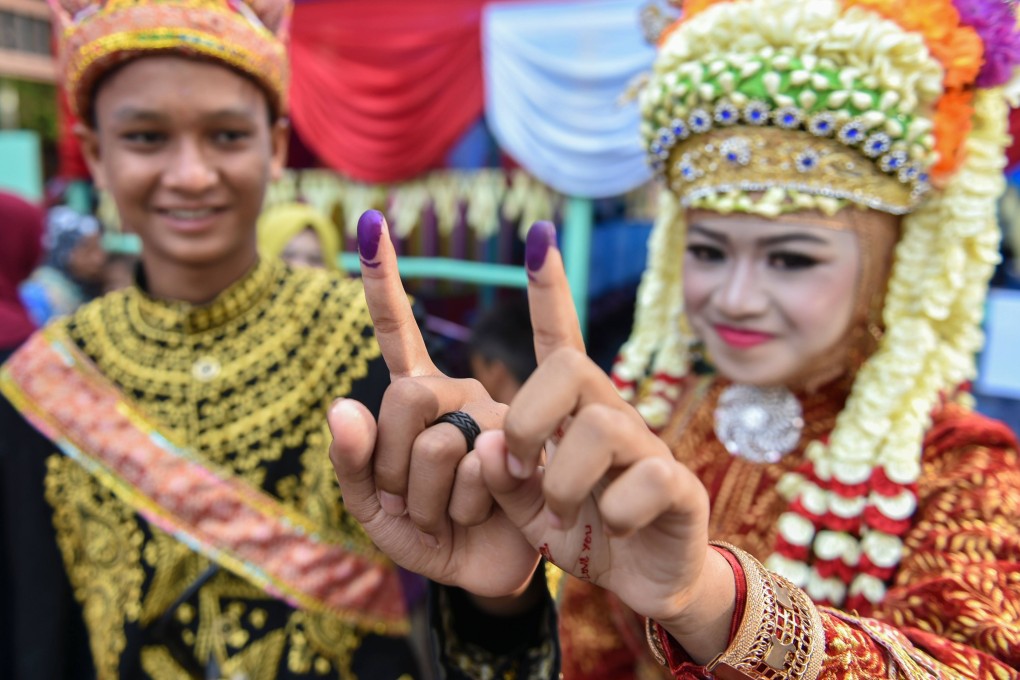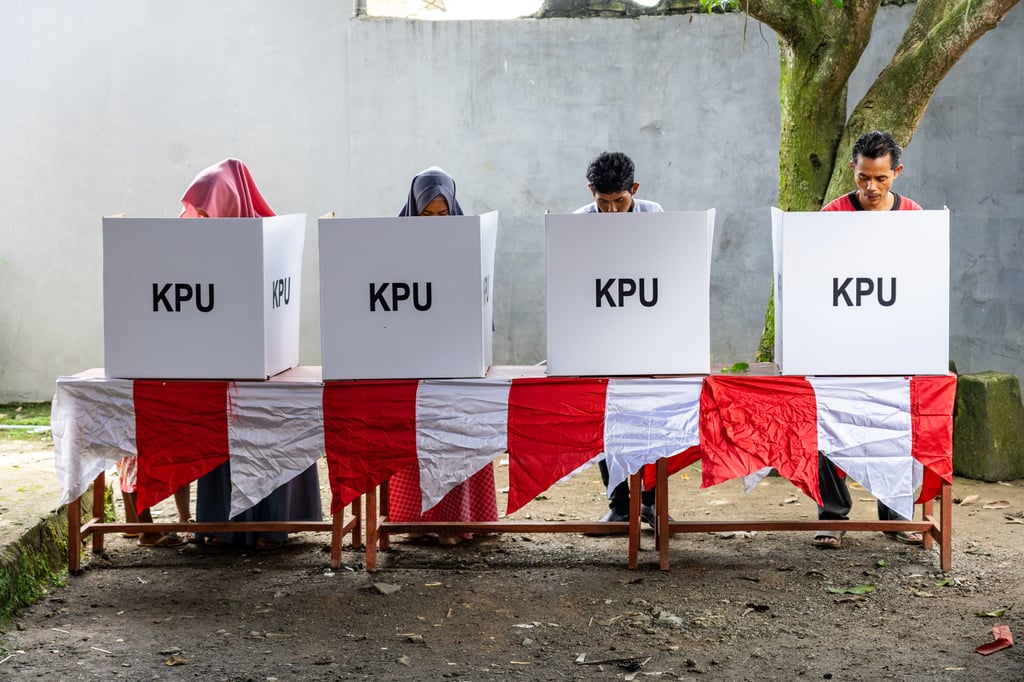Indonesia election: court rejects challenge to change electoral system that could be ‘setback to democracy’
- Politicians who filed the lawsuit had sought to restore Indonesia’s electoral system to a closed system rather than the current open system
- There are fears that a return to the closed electoral system would be a setback for Indonesia, the world’s third largest democracy

Indonesia’s constitutional court has struck down a legal challenge to change the country’s electoral system, just eight months before the country’s legislative and presidential elections on February 14 next year.
A closed ballot list system means that voters can only choose parties and cannot choose local candidates directly, with the party then deciding the winning candidate internally.
Indonesia used a closed ballot list system until it was scrapped in 2008 in favour of the current open list proportional voting system, which means that voters can cast ballots for either an individual candidate or a party.
“What was quite extraordinary was the extent of commentary regarding what the court sees as the relative merits or weakness of the open and closed electoral systems which was far closer to political analysis than any legal assessment of constitutionality,” Ian Wilson, a lecturer of politics and security studies at Murdoch University in Perth, told This Week in Asia.
In the panel’s judgment, which took around four hours to read, the panel of eight judges, only one of whom dissented, said that they “rejected the legal challenge in its entirety” and added that “the choice of any electoral system has the same potential for the practice of money politics”.
The panel said that the closed system was less transparent than the open system and limited public participation in the electoral process, while also being more vulnerable to nepotism.
